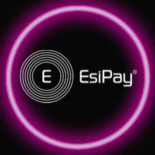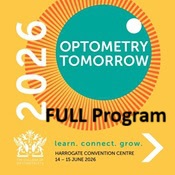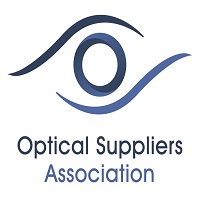Charities & Support Groups
Getting back to work with a Visual Impairment
Getting back to work with a Visual Impairment
“I knew I could still do my job and just needed some support to get back to where I was”
I knew my eyesight wasn’t right and I was getting anxious. My job is 100% computer based, I have a family, a mortgage, all the usual commitments. Fear began to envelop me. What was I going to do, how will I manage? Will my company lay me off? Am I destined for life on sickness benefit at the age of 50? I still wanted to work but didn’t know what was possible. I need a purpose in life and my career is everything.
I became aware of text on a screen or in a book looking odd; the lines appeared wavy and sometimes I would experience moving shadows in both eyes. I put this down to tiredness, or too much screen time or because of rubbing my eyes because they were sore and red; occasionally my vision became patchy or blurred. I started getting pain in my lower back as I was bending to see the screen. I was becoming clumsy but put this down to tiredness and stress rather than vision loss.
I decided to go to my optician for an early review and after my consultation, I was referred to the eye clinic at my local hospital where I was diagnosed with a condition called Macular Degeneration. I had never heard of it and was told by the Consultant Ophthalmologist that my eyesight would deteriorate, I would not lose all of it but there was no treatment available at the present time. He said I would probably lose my central vision, not in both eyes hopefully, but my peripheral vision should remain stable. He also informed me he was certifying me as ‘Sight Impaired’.
I was becoming very conscious in work, checking everything three times before I was happy that I had not made any mistakes. I work with large documents and segments of the page just disappeared from my field of vision, but I soldiered on as I was reluctant to admit to myself that I was having difficulties, let alone to my employers.
This resulted in my anxiety levels going through the roof and I noticed at home I was unable to watch TV and would bump into objects because I just did not see them. I was also unable to drive. Eventually I took sickness absence from work as I was finding the difficulties with my eyesight were really impacting on my life, along with frustration, anxiety and a general feeling of dread.
After two years of sickness absence, my salary now consisted of part wages and part from an Income Protection policy I had. I did not know what support was available or if there was a solution to this revolving door situation I was in, or was this my destiny? I was getting more and more depressed as I didn’t want to sit back and lose my career. I knew I could still do my job and felt I just needed some support to get back to where I was.
I decided to contact my Occupational Health department to discuss my situation and to be honest with somebody about my sight loss. The lady I spoke to was extremely knowledgeable and informed me that due to my disability I was protected under the Equality Act 2010, and that I would need a Workplace Needs Assessment for people with a Visual Impairment to find what adjustments could be put in place to enable me to return to work. I had never heard of such an assessment and could not for the life of me see what it could do as I was losing my sight and my job is 100% computer based.
The assessment was arranged late in the afternoon when the office was reasonably quiet. I sat with Dan who discussed with me not only the difficulties I was having at work, but physically, environmentally, and emotionally too – little did I realise there was so much help and equipment available to me.
I would be able to return to the workplace equipped with all the necessary information and adaptations to make my working and home life more bearable. I was astonished to discover the technology that was available!
Dan also recommended I contact the sight loss charities for more information and help. I was referred for intensive counselling, provided with magnification software so I could see my computer screen again, referred to my local council’s visual impairment team to learn how to use a cane so I could finally start getting out of the house independently again. I felt my ‘new’ life was starting.
Had I known about the assessment sooner, I could have prevented so much stress and anxiety as there was plenty of help and support available to me. I now know that I was not alone as at least 250 people begin to lose their sight every day. I didn’t necessarily need to be off on long term sickness claiming my income protection insurance.
It was a relief to find that after the recommended equipment was put in place and I had received the necessary training, I was able to return to work with confidence.
If I had been more aware of what was available to help me in the workplace, I’m sure I would have returned to work much sooner. This would have prevented so many sleepless nights, saved my company paying sick pay and the insurers paying out for my Income Protection claim.
I would have benefited, especially in terms of my mental health, self-esteem, my purpose in life and the fulfilment of working.
Advice and the story was provided by Dan Williams of Visualise Training and Consultancy who helps people with visual impairments retain their employment rather than being signed off from work.

























